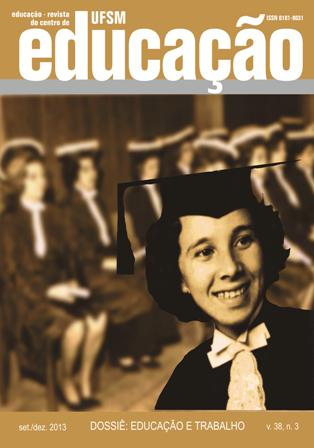Diversity in school and new requirements for teaching work
DOI:
https://doi.org/10.5902/198464448988Keywords:
This article begins with a discussion of the principles of social justice and school justice that underlies public policies for diversity in schools, and it examines the stated goal that aims at contributing to promotion of equality. Based on statements pAbstract
This article begins with a discussion of the principles of social justice and school justice that underlies public policies for diversity in schools, and it examines the stated goal that aims at contributing to promotion of equality. Based on statements provided by the teachers participating in the second phase of the research project “Teaching Work in Basic Education in Brazil”, we analyze the effects of these policies as expressed in the contradiction experienced by teachers at work, when they try to adapt the principle of equality to the attention to diversity. We observe that this contradiction leads to new workloads and makes it difficult for teachers to find meaning in their work.Downloads
Published
How to Cite
Issue
Section
License
Declaration of originality
We declare that all articles present in the journal Educação (UFSM) are originals and were not submitted for publishing on any other publication, as a whole or a fraction. We also declare that, after being published by Educação (UFSM), a paper will not be submitted to another journal within two years. After this time, our journal transfers the publishing rights to the authors, with a permit granted by the Editorial Council.
We also acknowledge that the originals’ submission to Educação (UFSM) implies on a transference of copyright for physical and digital publishing to the journal. In case of noncompliance, the violator will receive sanctions and penalties predicted by the Brazilian Copyright Protection Law (n. 9610, dated 19/02/98).
Attribution 4.0 International (CC BY 4.0)
This license lets others remix, transform, and build upon the material for any purpose, even commercially, and copy and redistribute the material in any medium or format.

This work is licensed under a Creative Commons Attribution 4.0 International (CC BY 4.0)






